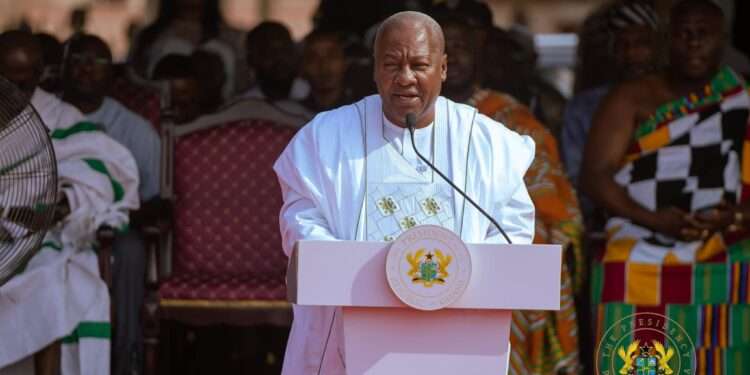As the popular saying goes, “the chickens are finally coming home to roost,” so is the Deputy Finance Minister, Dr John Ampontuah Kumah, under whose watch the economy melt down and fundamentals pointing southward; expressing optimism about the rebounding of Ghana’s economy, where crediting their home grown policies as the reason for the rebound.
According to the Ejisu legislator, the nation’s economy is showing significant improvement as a result of the ongoing recovery programme, being championed by Nana Addo led administration.
Dr. Kumah emphasised, however, that while the International Monetary Fund (IMF) programme provides short-term relief, it is not a permanent solution to the country’s economic challenges.
Dr. Kumah stated that the government aims to go beyond the IMF programme and leverage the grace period to foster the growth of a more stable economy.
To achieve this, the deputy minister mentioned that structural reforms and other interventions will be implemented to bring down the nation’s debt to a sustainable level and ensure fiscal sustainability.
Dr Kumah made these remarks during a gathering where he hosted approximately 1,000 widows in his constituency in the Ashanti Region.
As part of the event organised by him in collaboration with Ejisu Young Patriot, he also donated clothing items to the widows.
Dr John Ampontuah Kumah further expressed his confidence in the economic rebound of Ghana and highlighted the government’s commitment to pursuing structural reforms and interventions to achieve long-term economic stability.
Major Setbacks in Ghana’s Growth Pursuit
Meanwhile, the country has faced major setbacks in its growth pursuit. GDP growth is estimated to have slowed to 3.2% in 2022, down from 5.4% in 2021. The slowdown affected mostly the non-extractive sectors, as the recovery in gold exports supported extractives growth. The agriculture and services sectors experienced slower growth in 2022 than the year before. High inflation and interest rates depressed private consumption and investment. Government demand was weakened by lack of access to capital markets and high debt service obligations.
The 2022 fiscal deficit was well above target. The overall fiscal deficit (on a cash basis) reached 9.9% of GDP against a target of 6.7%.
Inflation accelerated throughout the year. In 2022, average CPI inflation was 31.5%, (up from 10% in 2021) and reached 54.1% in December (y-o-y). The Bank of Ghana (BOG) responded by increasing the monetary policy rate from 14.5 to 28 % over the year. However, these efforts were undermined by the government’s extensive use of its overdraft facility with BOG (estimated at 6.7% of GDP in 2022).

Overall, the balance of payments recorded a deficit of 5% of GDP, from a surplus of 1.9% in 2021. As a result, international reserves fell to $5.6 billion (2.5 months of import) in December 2022 from $9.1 billion (4.2 months of import) a year earlier. After remaining stable in 2021, the Cedi lost over 40 % of its value against the US dollar in 2022.
However, in 2023, the situation hasn’t seen much of improvement. Growth is expected to slow further to 1.6 % in 2023 and remain muted in 2024, before returning toward its potential. Non extractives growth is expected to remain slow, with agriculture affected by high input prices and a disease affecting cocoa trees. Extractives growth is expected to be robust thanks to new gold mines and a recovery in small-scale mining.
International poverty is projected to decline slowly from 20.5 to 19.5% by 2025, consistent with a muted outlook on growth for the country and high inflation. In the shorter term, poverty is expected to increase slightly, due to the cumulative effects of increases in electricity and water tariffs, rising food prices and an increase in VAT. The revised electricity tariffs could be less regressive and reduce poverty if a portion of the increased revenues were targeted to the poor in the form of cash transfers.
Therefore, it is evident that the deputy finance minister’s assertions might carry some element of truth, but it doesn’t paint the whole picture of the current situation.
READ ALSO: GSA Urges Exporters in the Country to Adapt to the Changing Dynamics of International Trade





















